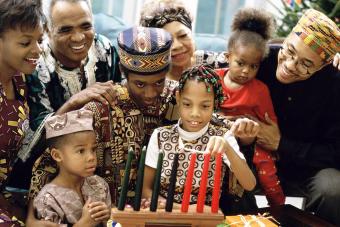
Confidence can affect many different aspects of a person's life, including reading. Children who develop a love of books early on may be more likely to gain confidence in their literacy skills. In this exclusive LoveToKnow Children's Books interview, J. Richard Gentry, PhD provides tips for raising confident readers.
About J. Richard Gentry, PhD
J. Richard Gentry, PhD is a nationally acclaimed expert on childhood literacy, reading, and spelling development, and the author of Raising Confident Readers: How to Teach Your Child to Read and Write -- from Baby to Age 7. Dr. Gentry's perspective is invaluable because he struggled with dyslexia, a condition that makes learning how to read difficult.
Dr. Gentry brings with him more than 30 years of experience in childhood education. He taught Reading Education at Western Carolina University.
Helping Struggling Readers
LoveToKnow (LTK): Your dedication with helping young children develop reading skills is remarkable. Does having dyslexia play a role in your drive to help others?
J. Richard Gentry (RG): Having dyslexia has shown me what it's like to be a struggling reader and speller. Although I learned to read in first grade, I continued to suffer the residual tell-tale signs of dyslexia: life-long lousy spelling; relatively slow reading rate; difficulty remembering names on the spot; and struggles with learning foreign languages, to name a few.
I'm convinced that baby/toddler reading during a critical period of brain development from birth to age 3 is the best way to eliminate these problems that can be debilitating later in life. To best understand how reading and spelling work for struggling readers, maybe I had to be one.
LTK: What inspired you to write Raising Confident Readers: How to Teach Your Child to Read and Write -- from Baby to Age 7?
RG: My mom was my first grade teacher. She taught me to read in first grade and two generations later she expressed regret that she had not begun the process in baby/toddlerhood. The second blast of inspiration came from a New York literary agent who invited me to write a book for parents based on my career of research for teachers of beginning reading. It took me three years to do the background work, including work with scores of parents who successfully taught their babies and toddlers to read.
Introduce Reading Early

LTK: When should parents introduce reading activities to their children?
RG: Parents should begin reading aloud to children at birth. It feeds the child's hungry brain with data for language development, speaking, and early word reading. It's a wonderful way to bond and leads to cognitive, social, and emotional development. Word games and labeling for reading-words-around-the-room can begin around 4 to 8 months of age. Holding a baby-safe crayon for scribbling is a milestone for 12-month-olds.
LTK: Are there any specific children's books that can help?
RG: In Raising Confident Readers, I recommend specific books for five specific levels of beginning reading development. Many of the classic books like the Dr. Seuss books are excellent for toddlers. Books should be easy and happy. Books that become a child's favorite should be read over and over.
Starting out in the first three years of life, the type of books that work best are:
- Wordless picture books
- Labeling books
- Alphabet books
- Nursery rhyme books
- Books for chanting and singing
- Pattern books with easy-to-read predictable repeated text
- Board books for baby handing
- Soft cloth books
- Story books
- Information books
There are lots of wonderful choices!
Building Confidence in Reading
LTK: Confidence can be a key factor in a child's success. What can parents do to instill confidence in young readers?
RG:
- Start early.
- Make reading fun.
- Model good reading habits at home.
- Support and monitor early reading for preschoolers.
- Be an advocate for your child's reading and academic growth in school.
Raise a child who loves to read, and the confidence factor will take care of itself, because confidence comes from within. It's really easy to teach babies and toddlers to read with a little time each day spread over the first three or four years of life. Being the child's first reading teacher is a great legacy for parents.
LTK: Where can parents and educators learn more about your books and workshops?
RG: Raising Confident Readers: How to Teach Your Child to Read and Write--From Baby to Age 7 is available in bookstores and on Amazon.com. Visit my website at JRichardGentry.com and my Psychology Today blog post. For workshops and speaking engagements, please contact me at Richard @ jrichardgentry.com.
Developing Reading Skills for Life
Developing reading skills that last a lifetime ideally begins early, and Dr. Gentry is a pioneer in effective strategies for acquiring skills early in life. For parents who have children who struggle with reading into their school years, books for struggling readers are available for children of all ages.







